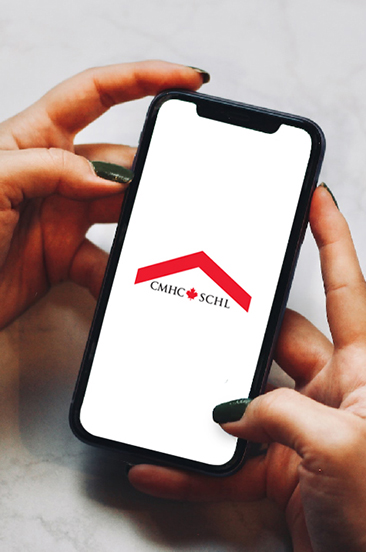Online Application Portal
Before starting your application, please download, save and review our Application Guide. The guide includes all the information needed to create your profile and start the application process successfully.
Before starting your application, please download, save and review our Application Guide. The guide includes all the information needed to create your profile and start the application process successfully.
The Affordable Housing Fund provides capital to partnered organizations* for new affordable housing and community housing. Funds are provided as low-interest and/or forgivable loans and contributions.
Protect Yourself from Fraud
Have you or your clients received a suspicious message claiming to be from CMHC or one of our programs? Stay vigilant—CMHC will never request your personal banking information or ask for payments through unfamiliar accounts.
* This fund is available to organizations that have partnered with another organization or level of government and have secured some funding.
IMPORTANT
CMHC has received sufficient applications to fully commit the Affordable Housing Fund budget. The application portal is now closed.
CMHC and Build Canada Homes are working closely together to ensure no submission is overlooked.
Both organizations are committed to helping viable projects find the most suitable funding path. Not all projects submitted to the Affordable Housing Fund application portal will receive funding through this program, but the government is committed to carefully reviewing every proposal.
Clients interested in learning more about Build Canada Homes and its Investment Policy Framework can visit the Build Canada Homes website.
CMHC has successfully committed the full budget for the New Construction: Community Housing Sub-Stream under the Affordable Housing Fund. The application portal is now closed.
CMHC has successfully committed the full budget for the New Construction: Rapid Housing Sub-Stream under the Affordable Housing Fund. The application portal is now closed.
CMHC has successfully committed the full budget for the Repair and Renewal stream under the Affordable Housing Fund. The application portal is now closed.
CMHC has successfully committed the full budget for the Indigenous and Northern Communities option under the Affordable Housing Fund. The application portal is now closed.
The budget for the carve-out to Black-led organizations as an option under the Affordable Housing Fund Rapid Housing Sub-Stream has been fully allocated and the application portal is now closed.
CMHC's Frequent Builder framework is designed to accelerate the construction of affordable rental homes by expediting the application process for established housing providers working with CMHC that have a proven track record in delivering projects, making the process easier and faster.
As an approved Frequent Builder, you could gain advantages that streamline interactions and processes for selected CMHC projects, like these operational benefits:
To be eligible, CMHC will assess you on your:
For-Profit entities must have conducted a minimum of $50 million* of business with CMHC** and fulfill 3 of the following criteria based on the latest CMHC credit assessment:
*If the for-profit entity has not met the criterion of having at least $500 million, but has met the other 3 criteria, they must also have a minimum of $50 million of business with CMHC.
Provinces, territories, municipalities, Indigenous governing bodies and other levels of government require a minimum level of business of $20 million with CMHC.**
For non-profit organizations, registered charities and co-operative housing corporations, CMHC will also consider clients who meet one of these requirements: have a minimum of $50 million of business with CMHC or have a minimum of $20 million of business with CMHC** and manage a large portfolio of rental housing units.
To achieve Frequent Builder status, you are required to undergo a credit assessment and provide CMHC with annual audited financial statements. Government entities are exempt from the credit assessment.
For more information about the Frequent Builder framework, contact our Contact Centre or reach out to your CMHC specialist.
**Loans must be linked to one of the following programs:
The Affordable Housing Fund has options for new construction. Contact us to see which option is right for you.
Here are some renovation projects carried out with the support of the Affordable Housing Fund.
Sign up for notifications about the Affordable Housing Fund.
Please correct the following errors:

 Share via Email
Share via Email
 Share via Email
Share via Email

